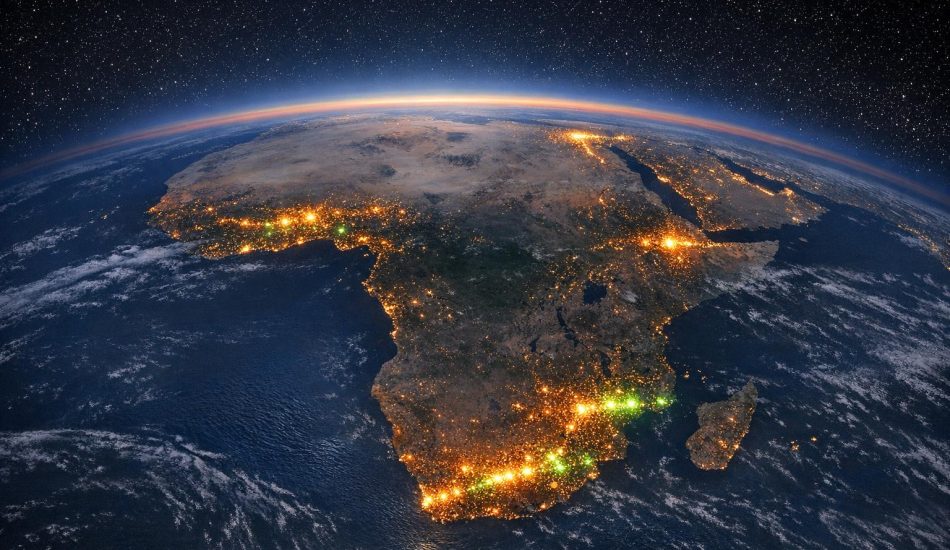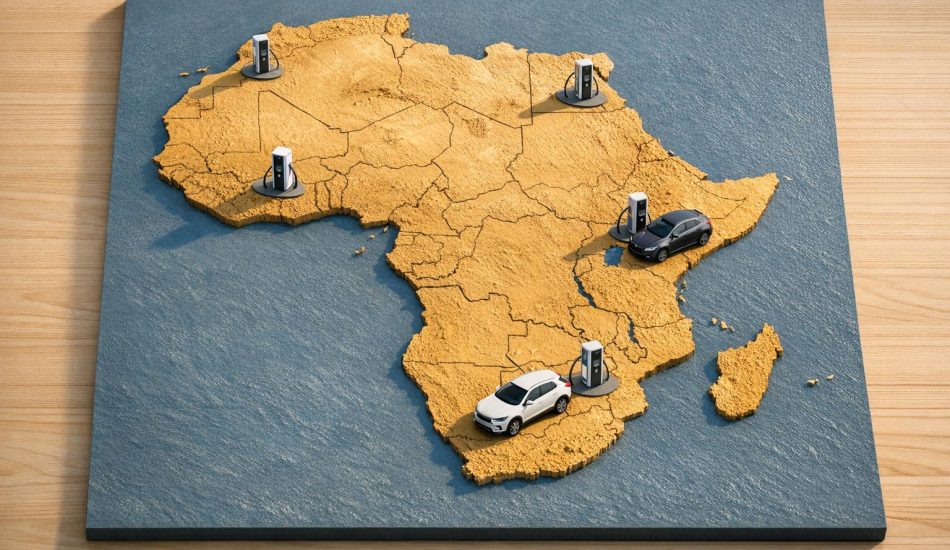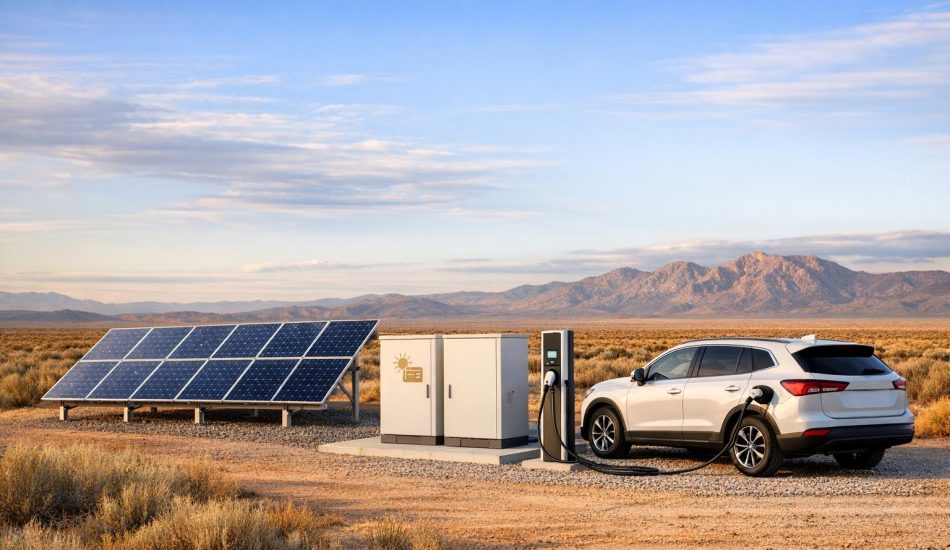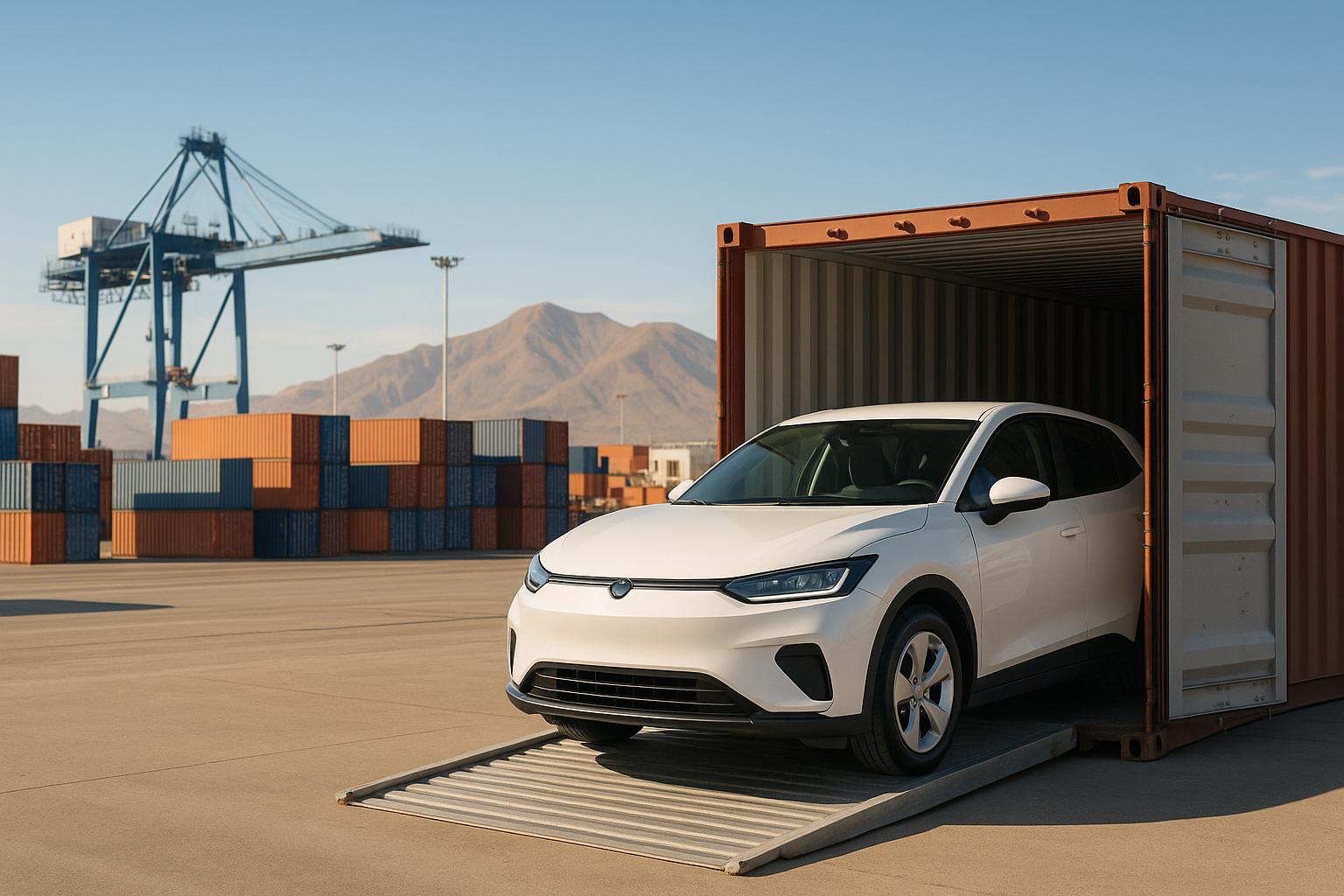
Morocco is reshaping its electric vehicle (EV) import regulations in 2025 with eight key changes aimed at simplifying processes, reducing costs, and boosting EV adoption. These updates align with the nation’s goal to phase out gasoline-powered cars by 2035 while leveraging its strong position in EV battery production. Here’s a snapshot of the 2025 changes:
- Faster customs clearance: Less paperwork and online payment options for duties.
- Stricter technical inspections: Vehicles must meet updated safety and technical standards.
- Temporary import updates: Easier rules for vehicles with provisional registration certificates.
- Tax incentives: Reduced import tariffs, zero duties on equipment, and lower VAT for EVs.
- Battery recycling rules: Stronger focus on sustainable battery disposal.
- Simplified registration: Streamlined processes for quicker vehicle registration.
- Vehicle age limits: Stricter standards on imported vehicles’ age and battery quality.
- Brand-specific import caps: New limits on the number of vehicles certain brands can import.
These changes aim to make EVs more affordable and accessible while supporting Morocco’s growing EV industry, which saw over 2,000 units sold in 2024. With a $6.4 billion EV battery factory under construction and expanded production by automakers like Stellantis, Morocco is positioning itself as a key player in the global EV market.
Morocco’s Current EV Import System
Morocco’s electric vehicle (EV) import system is overseen by the Customs and Indirect Taxes Administration (ADII). Import duties typically range between 10% and 30%, with an additional VAT applied to all imports. Once vehicles clear customs, they must undergo technical inspections and local registration. Import duties are calculated based on the vehicle’s value, and the government retains the authority to adjust tariff rates and other duties, excluding VAT.
Who Can Import EVs
Both Moroccan and foreign nationals are allowed to import EVs, though specific rules apply depending on the importer’s status. Moroccan nationals, particularly Moroccan Residents Abroad (MREs), enjoy several benefits. For instance, individuals returning to Morocco permanently after at least two years abroad can receive a 25% reduction on the value of a new vehicle. Additionally, MREs aged 60 or older who have lived outside Morocco for at least ten years may qualify for a 90% reduction on taxes based on the vehicle’s new value. Those making a permanent return also benefit from a one-time, three-year reduction in the vehicle age used for calculating duties and taxes, with no need to provide income or tax-related documentation.
Foreign nationals, on the other hand, must prove their intention to establish long-term residence in Morocco. This can be done by providing documents like a residence card, proof of a professional project, or a rental lease agreement.
Once eligibility is established, importers must follow a structured customs and registration process.
Customs and Registration Steps
The registration process involves six steps and typically takes about 30 days to complete:
- Border Declaration: Importers must declare their intent for permanent importation at the border.
- Customs Valuation: Customs officials assess the vehicle’s value to calculate applicable duties.
- Payment: Importers pay the required duties and VAT, after which they receive a quitus douanier (customs clearance certificate).
- Technical Inspection: The vehicle undergoes inspection at a "service des mines" center to ensure it meets Moroccan safety and emissions standards. A Moroccan conformity certificate is issued upon approval.
- Registration Submission: Importers submit all required documents to the local registration center (NCFCC).
- Final Registration: After processing, which takes approximately 30 days, the official Moroccan registration card is issued.
The steps are summarized in the table below:
| Step | Process | Outcome/Required Documents |
|---|---|---|
| Border Declaration | Declare permanent import intention | Admission form |
| Customs Valuation | Assess vehicle value for tax calculation | Basis for duties and taxes |
| Payment | Pay import duties plus VAT | Quitus douanier certificate |
| Technical Inspection | Verify vehicle conformity | Moroccan conformity certificate |
| Registration Submission | Submit complete documentation | Temporary receipt |
| Final Registration | Processing and official registration | Moroccan registration card |
A notable recent change has been the removal of the five-year restriction on ownership transfers. This means imported vehicles can now be sold or transferred immediately after registration. Additionally, ADII has introduced an online customs guide tailored for MREs, simplifying proof-of-residence requirements and improving the overall documentation process. These updates aim to make the system more efficient while maintaining the existing framework until the planned regulatory changes in 2025.
Understanding these procedures is crucial as Morocco prepares for significant updates to its EV import system in 2025.
8 New Changes to Morocco’s EV Import Laws in 2025
Morocco is introducing updates to its EV import laws that aim to simplify processes and strengthen safety measures. These changes reflect the country’s commitment to modernizing its EV framework and making imports more efficient.
1. Faster Customs Clearance Process
Customs procedures have been streamlined by cutting down on paperwork.
"The customs administration eliminated previous paperwork requirements that demanded two years of pay slips from wage earners and recent tax documents from merchants and professionals."
Importers can now settle duties using online payment options through Moroccan banking apps, reducing the need for in-person visits. These updates not only save time but also make the process more user-friendly. Additionally, stricter technical checks and refined temporary import measures have been introduced to ensure compliance.
2. Stricter Technical Inspection Requirements
Imported EVs must now include a valid technical inspection report from their country of origin. This report must be issued within the last six months to confirm the vehicle meets safety and technical standards.
3. Updated Temporary Import Rules
Vehicles with a valid provisional registration certificate (CPI) are now eligible for Morocco’s temporary import framework. This adjustment simplifies the process for vehicles under temporary admission.
These updates demonstrate Morocco’s dedication to modernizing its EV import system, ensuring a smoother and more reliable experience for importers.
sbb-itb-99e19e3
How These Changes Affect EV24.africa Users
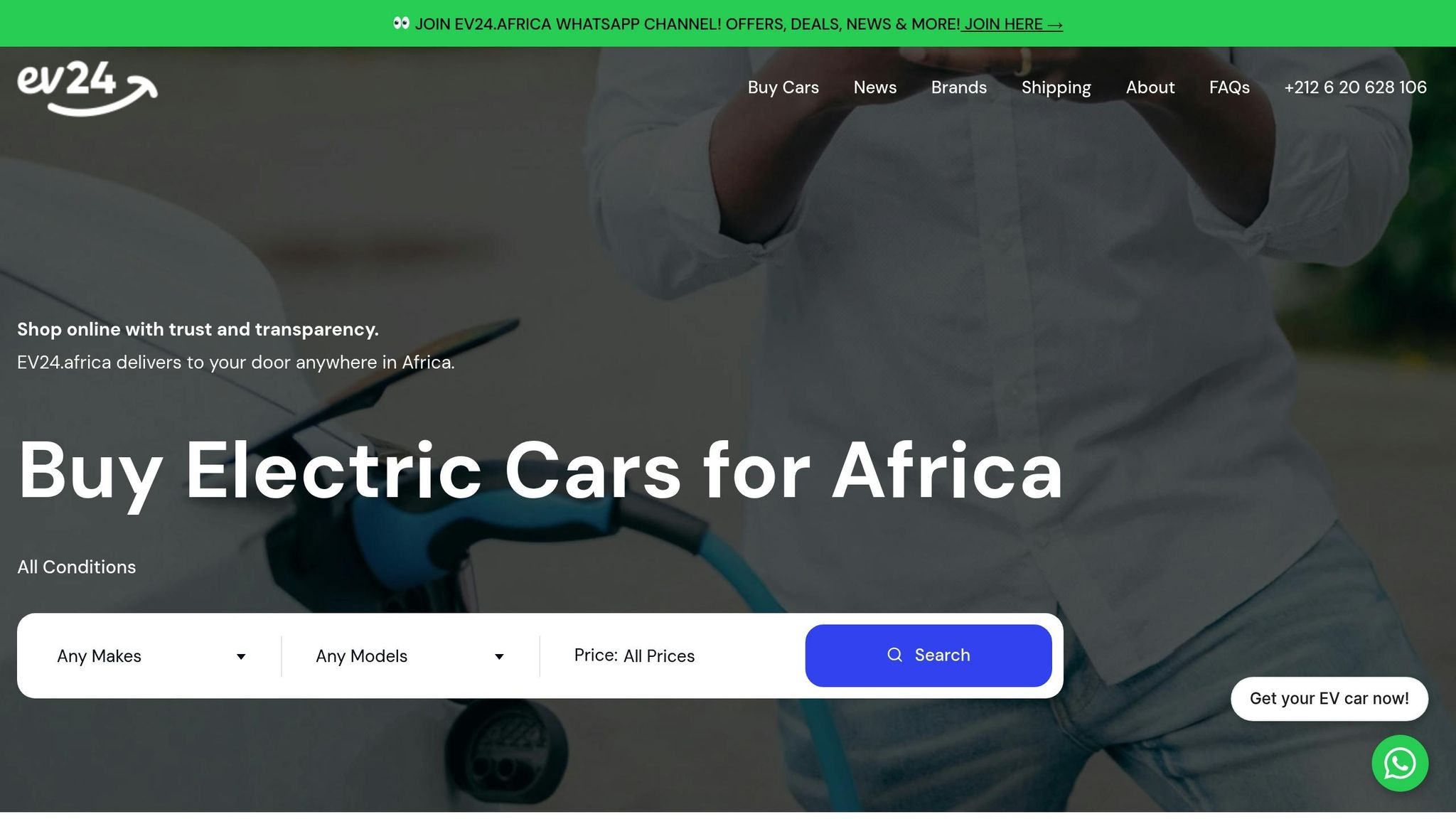
The 2025 import law changes bring both new opportunities and responsibilities for EV24.africa users, whether they are buyers or sellers. These updated regulations aim to simplify procedures while enforcing stricter compliance for the buying, selling, and importing of electric vehicles (EVs) in Morocco.
EV24.africa has adjusted its platform to align with these regulatory changes, ensuring a smoother and more efficient experience for its users.
How EV24.africa Handles the New Rules
EV24.africa has seamlessly integrated these updates into its operations to make EV imports in Morocco more straightforward. The platform now supports instant transfers once customs clearance is completed.
To comply with local regulations, EV24.africa mandates that all vehicles undergo the required Moroccan technical inspection. Additionally, users must secure a conformity certificate, which verifies that each EV meets the latest safety and technical standards.
For returning Moroccans, the process has been simplified further, offering a streamlined documentation procedure and a three-year reduction in tax calculations.
Tips for Buyers and Dealers
Here are some practical pointers to help buyers and dealers navigate the new system effectively:
- For Buyers: If you’re bringing a vehicle into Morocco, declare your intention to permanently import it – even if you’re initially opting for temporary admission. This step ensures all necessary documentation is in place. After clearing customs, head to an authorized service center for the Moroccan technical inspection and to obtain your conformity certificate. Once this is done, complete your vehicle registration at the local registration center (NCFCC). You’ll receive a temporary receipt valid for about 30 days, after which your official registration card and license plates will be issued.
- For Dealers: The market for hybrids and EVs in Morocco is growing rapidly. Currently, these vehicles make up about 5% of total new car purchases, but this figure is expected to more than double within the next two years. The influx of new brands, including Chinese manufacturers like Geely, BYD, Changan, and Lynk, offers dealers more inventory options. When selecting brands to sell, consider consumer perceptions. While some Chinese brands face challenges regarding quality perception in Morocco, European brands often enjoy a stronger reputation and distinct market positioning.
Take advantage of Morocco’s expanding EV infrastructure. The country recently established its first EV production plant in Kenitra, becoming the first in North Africa to achieve this milestone. Additionally, plans for an electric battery factory in the Casablanca region are in progress. These developments, supported by EV24.africa, are creating a more favorable market environment for both buyers and sellers.
Getting Ready for Morocco’s 2025 EV Import Changes
Morocco is making waves in the electric vehicle (EV) market with its updated import regulations, aimed at simplifying processes and encouraging growth. These changes open doors for both individual buyers and businesses eager to explore or expand in Morocco’s EV sector.
One major change is the removal of the old five-year waiting period for transferring ownership after customs clearance. Now, ownership can be transferred right away, making the EV market more appealing to dealers and private buyers alike. These updates call for careful planning to ensure everything goes smoothly.
The first step? Getting your paperwork in order. Importers need to complete Morocco’s streamlined customs clearance and technical inspection processes to secure the certificates required for registration.
For businesses, adapting to these regulations is just as important. Understanding the rules, including compliance certifications issued by IMANOR, is essential. However, businesses should also brace themselves for possible delays while navigating formalities and administrative hurdles.
It’s also wise to budget for administrative costs, such as fees for document translations and photocopying.
Another option worth considering is Morocco’s temporary import system. This six-month renewable arrangement allows vehicles to enter the country without import taxes, making it a great choice for individuals testing the waters for residency or businesses assessing market potential.
For support, Moroccan Customs and Excise Administration offers assistance through their website (www.douane.gov.ma), email ([email protected]), or phone (+212 537 57.90.00 for international callers). Customs declarations are handled via the BADR portal, while Certificates of Conformity can be obtained through the PORTNET platform.
FAQs
How will the 2025 EV import law changes affect electric vehicle prices in Morocco?
The 2025 changes to Morocco’s EV import laws are set to make electric vehicles much more affordable. The updates include removing VAT (0%) and customs duties, which previously tacked on thousands of dollars to an EV’s price tag. To put it into perspective, a $30,000 electric car could now cost over $11,000 less under these new rules.
The goal of these changes is clear: to encourage more people and businesses to switch to EVs by reducing the upfront cost. This move is expected to boost sales and give a strong push to Morocco’s growing EV market.
What are the new technical inspection requirements for importing EVs into Morocco in 2025?
Starting in 2025, Morocco will enforce updated regulations requiring imported electric vehicles (EVs) to undergo specific technical and safety inspections. Importers will need to submit essential documents, such as registration papers, proof of ownership, and compliance certificates, to confirm that the vehicles meet the country’s standards.
These inspections must be completed prior to importation, ensuring that all EVs adhere to the new rules. This step aims to uphold safety and quality within Morocco’s growing EV market.
What are the key changes to tax incentives for importing EVs to Morocco in 2025?
Starting in 2025, Morocco is introducing new tax incentives that could reshape the electric vehicle (EV) market for both buyers and businesses. Fully electric vehicles will now be eligible for a 0% VAT rate and a complete exemption from customs duties. This is a major shift from the previous system, where combined import taxes and duties could climb as high as 50%.
The goal behind these changes is to cut costs, encourage EV adoption, and advance Morocco’s push to reduce emissions in the transportation sector. To put this into perspective, under the old system, vehicles imported from outside Europe faced import duties of about 17.5%, significantly driving up costs. With these new measures in place, EVs are expected to become more affordable and within reach for more consumers in Morocco.


